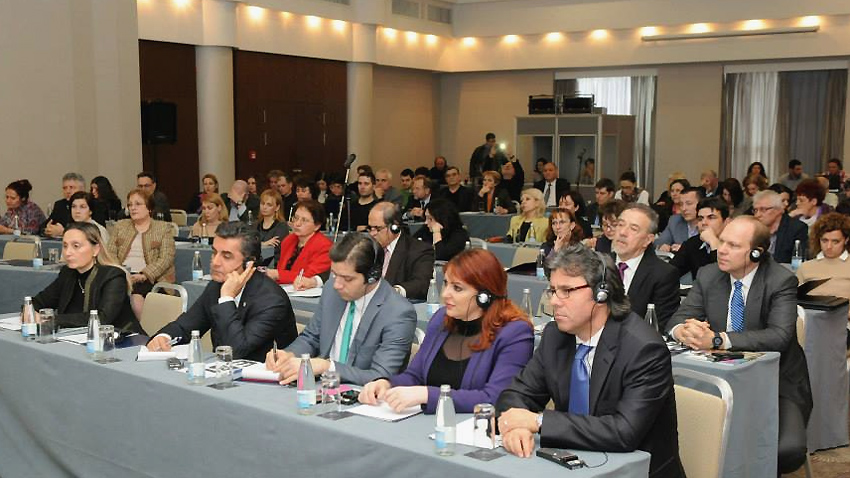It is difficult to imagine a democracy without public media and public radio - this is not a country we would want to live in. This opinion united the many speakers and guests of the International Conference titled "Public Radio in Europe – Trends, Challenges and the Way Forward” organized this week by the Bulgarian National Radio on the occasion of its 80th anniversary.
 "The future is in our hands," said the President of the Euroradio Committee with the European Broadcasting Union and Deputy Director of BBC Radio, Graham Ellis. After nearly 40 years in the British media leader, he believes that radio will continue to be part of people's lives for many years to come, but it is now faced with an important choice: to live in the past or re-invent itself. Graham Ellis talks to Radio Bulgaria in a special interview about the current developments in radio, the mission of public service media, the role of the EBU’s music exchange program, the current role of the foreign services in an ever-globalizing world, and also about his impressions from his first visit to Bulgaria and the BNR.
"The future is in our hands," said the President of the Euroradio Committee with the European Broadcasting Union and Deputy Director of BBC Radio, Graham Ellis. After nearly 40 years in the British media leader, he believes that radio will continue to be part of people's lives for many years to come, but it is now faced with an important choice: to live in the past or re-invent itself. Graham Ellis talks to Radio Bulgaria in a special interview about the current developments in radio, the mission of public service media, the role of the EBU’s music exchange program, the current role of the foreign services in an ever-globalizing world, and also about his impressions from his first visit to Bulgaria and the BNR.
"I think there are constant challenges for radio that are coming from the fact that people have got many more things to do with their time than they used to have, they have got many more opportunities to listen to music from different sources than they used to have. So there’s much more choice for the public. I think that if radio, both commercial or public, has to be successful in the future, people have to keep listening to the radio. The big challenge for us all is to make radio a really attractive way for spending your time. The role of public service media is to serve the citizen without being by any way tainted by political views or commercial interests and to make sure the public have sources of information on which they can rely. PSM stand on their bond with the citizen. It’s the citizen ultimately who pays for public service media and citizens will only pay if they feel that they get value and the value they look for is a trusted independent source of information.”
You can hear the full interview in the audio file.
The Embassy of Bulgaria in the Arab Republic of Egypt and the Republic of Sudan and the management of the Bulgarian School "St. Cyril and Methodius" in Cairo invite our compatriots to the opening of the 2025/2026 academic year. The event will take..
Today, 57,000 first graders across Bulgaria walked through the school doors for the first time. More than 2,300 schools across the country opened their doors to welcome students on September 15, a BGNES reporter..
An event dedicated to the Bulgarian oil-bearing rose (rosa Damascena) will take place on September 19 in Ireland, BTA reports. Its organizer is the Embassy of Bulgaria in the country. “We are pleased to invite you to a unique journey of sound..
Today, 57,000 first graders across Bulgaria walked through the school doors for the first time. More than 2,300..
The Embassy of Bulgaria in the Arab Republic of Egypt and the Republic of Sudan and the management of the Bulgarian School "St. Cyril and Methodius" in..

+359 2 9336 661
